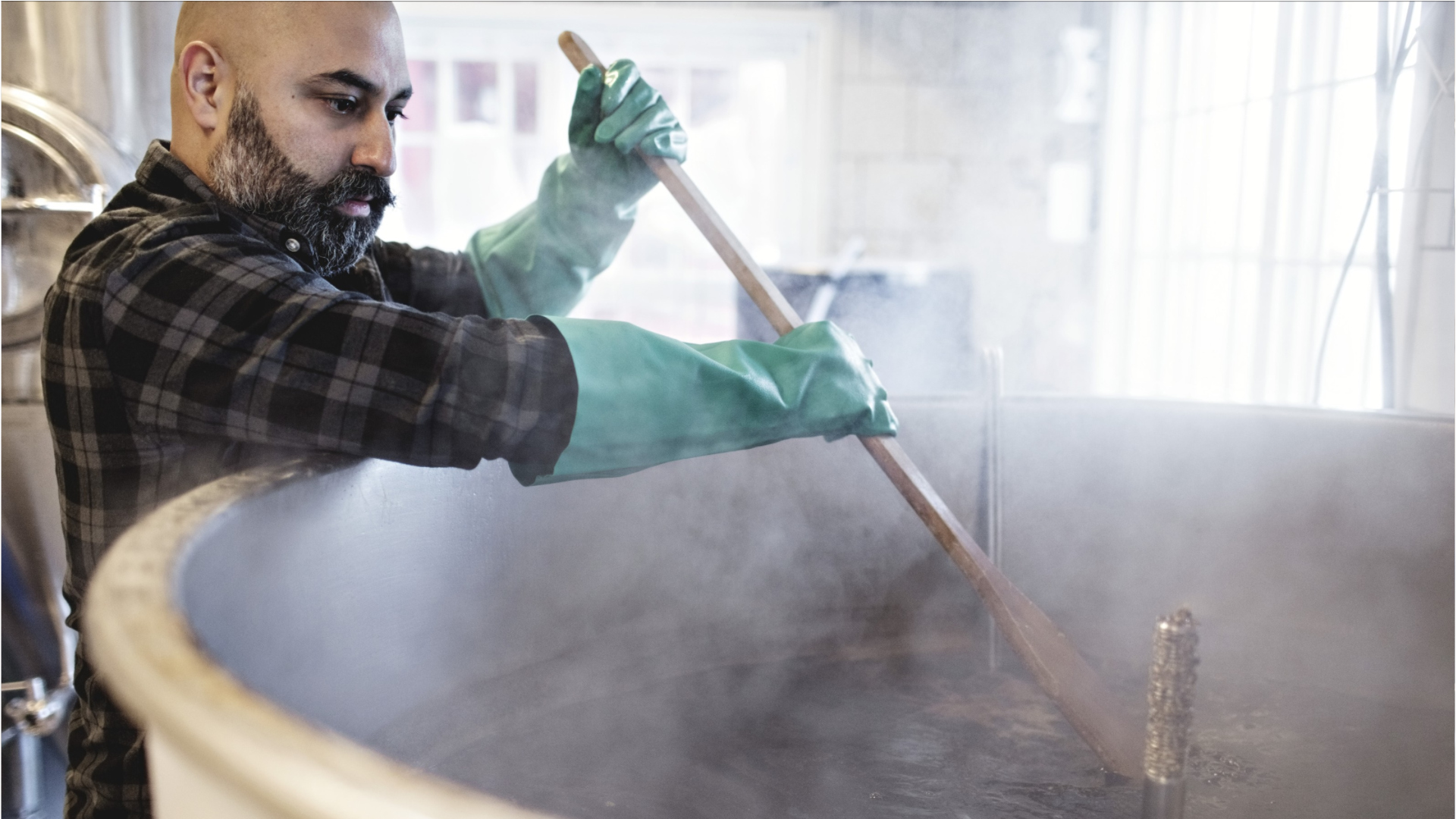Separating, Filtering, Clarifying, Precipitating, & Still Machine Setters, Operators, & Tenders
Brewer, Cellar Worker, Machine Tender, Pulper Operator
What they do:
Set up, operate, or tend continuous flow or vat-type equipment; filter presses; shaker screens; centrifuges; condenser tubes; precipitating, fermenting, or evaporating tanks; scrubbing towers; or batch stills. These machines extract, sort, or separate liquids, gases, or solids from other materials to recover a refined product. Includes dairy processing equipment operators.
On the job, you would:
- Dump, pour, or load specified amounts of refined or unrefined materials into equipment or containers for further processing or storage.
- Operate machines to process materials in compliance with applicable safety, energy, or environmental regulations.
- Monitor material flow or instruments, such as temperature or pressure gauges, indicators, or meters, to ensure optimal processing conditions.
Knowledge
Manufactured or Agricultural Goods
- manufacture and distribution of products
Engineering and Technology
- mechanical
Arts and Humanities
- English language
Skills
Basic Skills
- keeping track of how well people and/or groups are doing in order to make improvements
- thinking about the pros and cons of different ways to solve a problem
Problem Solving
- noticing a problem and figuring out the best way to solve it
Abilities
Hand and Finger Use
- keep your arm or hand steady
- hold or move items with your hands
Visual Understanding
- quickly compare groups of letters, numbers, pictures, or other things
- see hidden patterns
Personality
People interested in this work like activities that include practical, hands-on problems and solutions.
They do well at jobs that need:
- Cautiousness
- Attention to Detail
- Dependability
- Integrity
- Self-Control
- Stress Tolerance
Technology
You might use software like this on the job:
Electronic mail software
- Email software
- Microsoft Outlook
Presentation software
- Microsoft PowerPoint
Spreadsheet software
- Microsoft Excel
Education
Education: (rated 2 of 5)
high school diploma/GED
usually needed
usually needed
Get started on your career:
Find Training
Find Licenses
Apprenticeship.gov
Job Outlook
Below Average
New job opportunities are less likely in the future.
Explore More
- Chemical Equipment Operators & Tenders
- Chemical Plant & System Operators
- Cleaning, Washing, & Metal Pickling Equipment Operators & Tenders
- Furnace, Kiln, Oven, Drier, & Kettle Operators & Tenders
- Mixing & Blending Machine Setters, Operators, & Tenders
You might like a career in one of these industries:
See more details at O*NET OnLine about Separating, Filtering, Clarifying, Precipitating, & Still Machine Setters, Operators, & Tenders.





